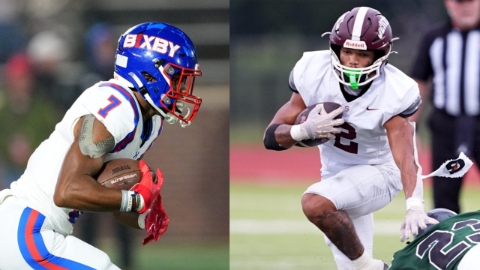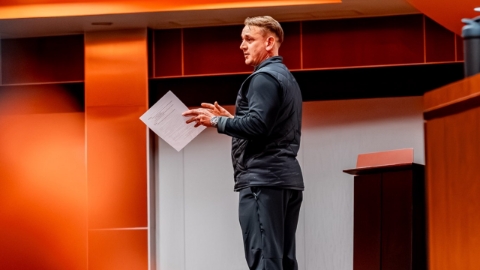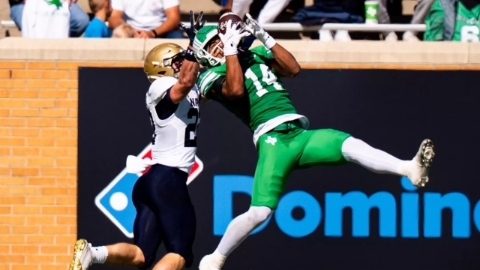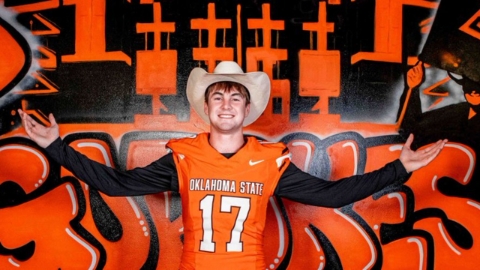Get Ready, Announcement of SEC-Big Ten Advisory Group Step One in NCAA Succession
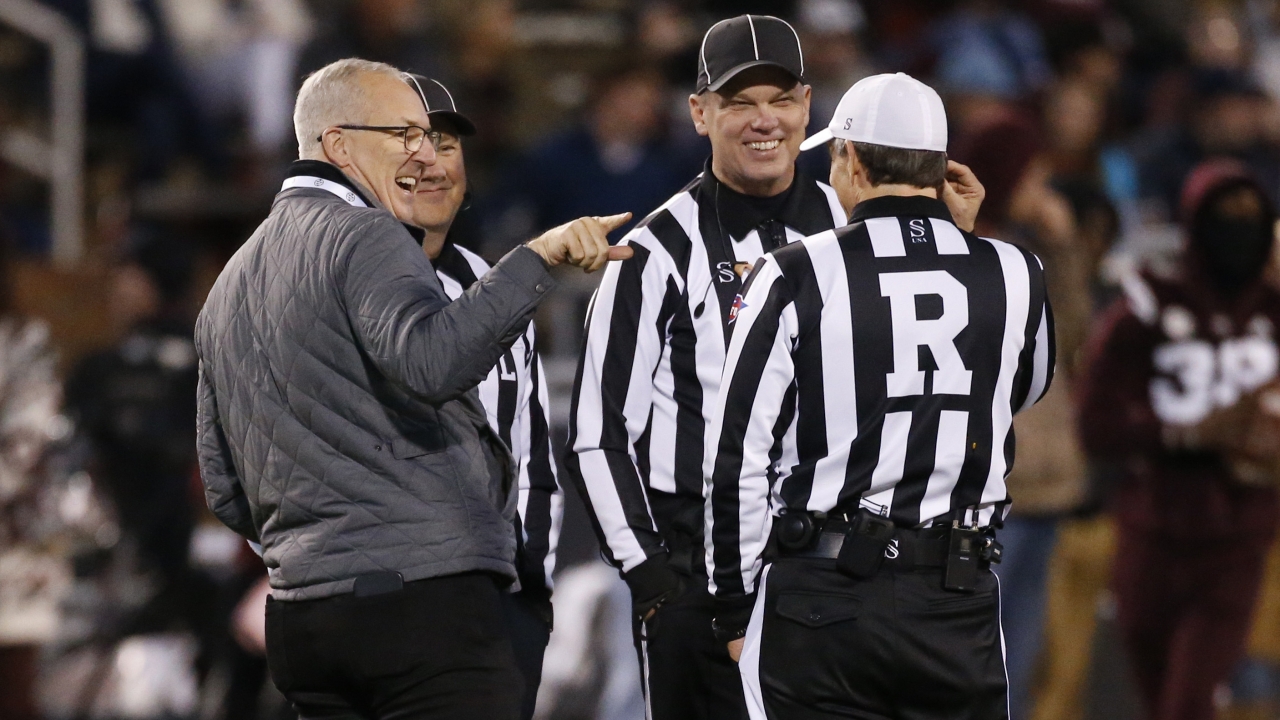
STILLWATER – A couple of years ago on my radio show on Triple Play Sports Radio, and I was looking for that summer fill-in material. The SEC were in the midst of their football media daysm actually just starting and there was no Nick Saban or Kirby Smart at the podium, it was the SEC commissioner Greg Sankey. Commissioners’ state-of-the-conference addresses are rarely good radio but Sankey is different and in the summer of 2022 with Texas and OU poised to try for a quicker get-away to the SEC and NIL and transfer portal issues raging. I took Sankey live from Atlanta and the podium.
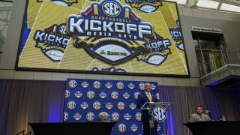
“As we refocus, here is what I told our coaches. It is never going to be the same, but it doesn’t have to be the way that it is,” Sankey told his media audience live and my audience on radio. “We’re dealing with complex problems that won’t be solved by complaints, by accusations, by finger pointing, or by offering simple solutions. What is needed now is collaboration, deep thinking about real world solutions, and everyone participating in the conversation.”
Fast forward and the news today as Sankey and SEC and Big Ten commissioner Tony Petitti and his schools have announced the formation of an advisory board made up of presidents, chancellors, and athletic directors from the SEC and Big Ten. That story was first reported by Ross Dellenger of Yahoo Sports. The groups’ work is kind of designed along that two-year-old statement that Sankey made at SEC Football Media Days, Take out the last phrase in the last sentence. Not everyone involved here, just the two richest of the future Power Four conferences. In fact, some people, people that are in or cover those two leagues or work at ESPN, will tell you it is a Big Two or Power Two conferences. Those two conferences may lead the way, but I believe all in the Power Four and Notre Dame will follow.
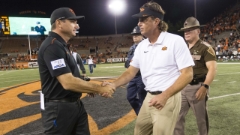
I know the first inclination is to think of the old “Alliance”. You remember the Big Ten, ACC, and Pac-12 got together and said they were going to schedule each others schools, meet, and try to lead college athletics toward doing the right things. They sounded like they would be the enforces to keep college athletics on the right path. There was no paperwork, just handshakes, and genetlemen’s and lady’s agreements.
That all lasted a month or two until the Big Ten raided the Pac-12 and swiped USC and UCLA with Oregon and Washington eventually to follow. The Big 12 took the four corner schools in Colorado, Arizona, Arizona State, and Utah. Cal and Stanford begged to join the ACC. Oregon State and Washington State were left with the Pac-12 name and some of the bank account, but otherwise homeless. So, ask them how the Alliance worked out.
That is a horror story, but I don’t think the “advisory group” is a threat to raid the Big 12 or the ACC. The only threat is the advisory group and Greg Sankey may someday, maybe someday soon, be telling them how college football and maybe college sports at the top schools are going to operate.
Back to two years ago and that address by Sankey. He cited the NCAA and its’ lack of effectiveness in monitoring, administering, investigating, and disciplining college athletics at the highest level. The NCAA has flunked. Now, the NCAA is the schools with the guidance of administrators hired by the schools. The system has flunked. It’s okay for Division II and III, even for the Division I FCS level. At the Power Four Division I level it in incapable.
“Here is our view,” Sankey said two years ago. “We need a clear, enforceable standard to support national championship-caliber competition, and national championships themselves, like the College World Series, the Final Four, the College Football Playoff national championship, and every other national championship, so there is a connection and a common basis for competition.”
Pretty simple statement. We need rules, enforcement, and administration that will support those competitions and more if we are talking other sports. I believe the NCAA could continue with all sports except football. College footbal, for sure, needs help. The NFL has a collective bargaining agreement with salary caps and a draft for talent. College football right now has run-away collectives, some schools where the coaches are knee deep in NIL, some schools where tampering is just considered another aspect of recruiting.
“I have a history of not commenting on specific matters,” Sankey said to Yahoo Sports this week when asked about the Tennessee case. “What’s in front of us are a big set of realities. Not simply — quote — cases, but big realities. We need to be dealing with the big realities.”
Agreed.
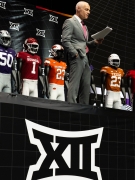
Back in that SEC State-of-the-conference address in 2022 Sankey volunteered his skills as a leader to help college athletics. I would want to see Big 12 commissioner Bett Yormark with a seat at the table and for many reasons, mainly public relations and negotiating savvy, that would be good for all of college football and/or college sports. I don’t know as much about Pettiti.
I’ll say it here, I can see Greg Sankey as the commissioner of the top level of college football. The membership list should be the SEC, BIg Ten, Big 12, ACC, and Notre Dame. That comes to 65 schools. I would think that Oregon State and Washington State might want in. I could also see a school or two potentially backing out, maybe not.
Sankey told Yahoo’s Ross Dellenger, in the exclusive interview that and and Pettiti did with that outlet in announcing the advisory board, that bumping off the NCAA was not the end game.
“From our perspective, we have a lot that is linked to the NCAA,” Sankey told Yahoo. “We want to see a healthy national organization. I think that’s very much a need.”
However, “pressures are mounting,” Sankey continued. “We’re going to have conversations about what might a path forward mean for college sports.”
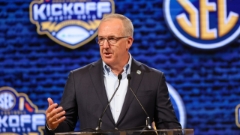
I’ll cut to the chase. The path forward is shrink the governance to like institutions with the same goals and close to the same circumstances. Not everybody is Alabama, Texas, or Ohio State. Some schools deal with smaller, but still in the ballpark, revenues and expenditures. Some like Arizona and Oklahoma have some major financial debt to overcome. However, these are schools that want to play for and win the College World Series, the Final Four, the College Football Playoff national championship, and every other national championship.
That should allow for a better chance to come up with a set of rules and a body to enforce them that can be effective. It has been a long time since we’ve seen anything that resembled that.
